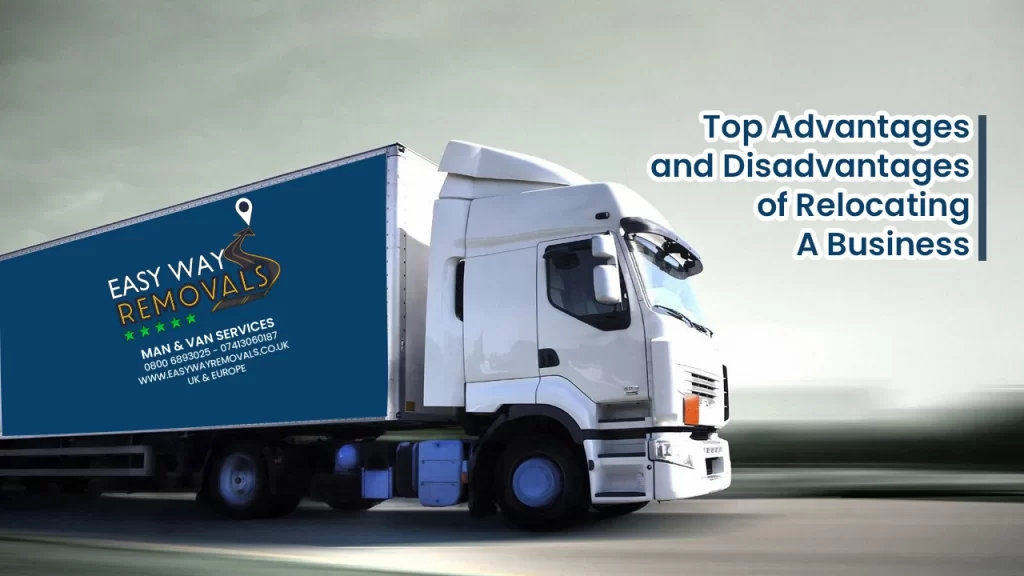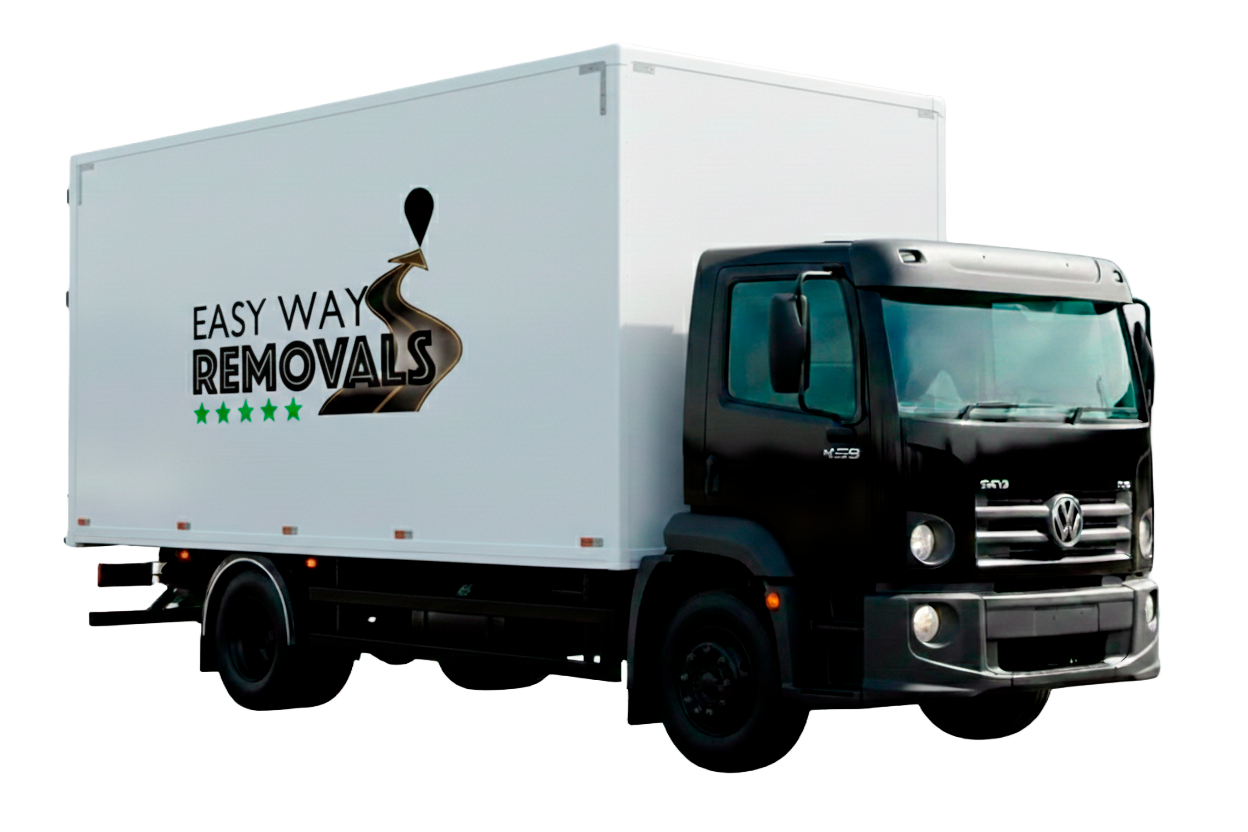
The business landscape changes every year. Many owners find themselves needing a fresh start in a new location. That’s why understanding the advantages and disadvantages of relocating a business is so important. Moving can give you access to more customers, better staff, and bigger spaces. But it can also bring higher costs, disruptions, and new rules to follow.
If you make the move without planning, it can hurt your business instead of helping it. On the other hand, a smart commercial relocation can boost growth and open new opportunities.
In this article, we will break down the real benefits and the challenges you should expect. By the end, you will know exactly what to consider before taking the step, so you can make a confident decision.

Relocating your business can open many new doors. You can find better staff who have the right skills and live nearby. You also get closer to more customers, which helps your business grow faster. Some areas may be slowing down, so moving to a thriving place can actually save money in the long run. A bigger or newer office or facility gives you space to expand and improve your work environment easily.
Now, let’s in detail go through the positive impact of the business relocation.
Your business location is a crucial factor that can make or break your company’s success. There are some signs that indicate whether a place is business-friendly or not. The most common ones are – transportation facilities, booming commercial areas, lower crime rates, etc.
A better business location can boost your business performance within a short period. Hence, it’s wise relocating an office to a good place as soon as you can.
Access to more opportunities is also one of the key reasons for the relocation of the business. Most businesses think about changing their existing location when their sales are going down.
At this stage, moving into a new place can attract new customers/clients, vendors, and talents.
Moving to a prominent demographic is a worthy decision that a business might take.
Also, know that moving can help you hire better staff. You get skilled people who may not be near your old location. A shorter commute makes employees happier. It can also keep your best staff from leaving.
Many business transfer from one place to another because of a cheaper rate. Picking up a cheap place has some risks, though. You might move into such a place that is not good for business or have other issues.
That’s why you must be extremely careful about the cheap space.
Plus, some moves save money on rent, utilities, or wages. Governments may offer grants or tax incentives. But if you move abroad, watch out for currency changes and taxes.
Even if a new location looks cheaper, you need to check rent, taxes, and other costs. Some areas may charge more than you expect, which can hurt your budget. Choosing the right location helps reduce long-term expenses and can improve profits. A good place saves money and gives you better opportunities to invest in your business.
Why do businesses relocate? Another answer to this question is to upgrade facilities. Your current business place may be outdated that can’t fulfill your requirements.
In this case, a new place provides more opportunities to upgrade your facility
Moving closer to universities, research centres, or industry hubs can speed up ideas and product development. It also helps team up with other companies.

As like the other side of the coin, when you are thinking about relocating a business checklist, you need to keep the negative sides in mind. The negative sides are stated below:
Moving isn’t an easy task. It needs a whole bunch of hard work, time, and money. One of the biggest disadvantages of moving a company is that it increases downtime.
However, this production loss can be minimized if you continue your business operation in both new and old areas during the transition. Reliable corporate relocation companies can help you with this.
You can reduce downtime by moving in phases, planning carefully, or hiring expert movers. Make a plan to keep work going.
Moving not only disrupts your business but also takes a lot of money in packing, transporting, and preparing a new location setup. All these steps need a considerable amount of cash.
If you don’t have enough budget, you should rethink the move.
If your business moves far from the existing location, there is a high chance you will lose your old clients.
However, some clients may go back to you after a while if they like your service for real.
On the other hand, you can always encourage your new customers by giving discounts and other offers. So even if your business faces a decrease in sales for a period, you can overcome the situation with perfect strategy.
Sometimes your old employee might leave the company because of the new location due to long distance or any other issue.
Your business might have new rules and regulations that affect your business cost or the way of conducting it. These have both positive and negative impacts on your business.
To overcome this problem, you should gain precise insights about the new location before moving in.
New laws can be tricky. You may need licenses, follow employment rules, or deal with taxes. For international moves, GDPR and IP rules matter. Hire local advisors to stay safe.
Moving abroad can bring cultural or language challenges. Staff might need training, and hiring bilingual managers helps. Understanding local habits keeps teams and clients happy.
If a UK company wants to move abroad, choosing the right country is very important. You need to think about costs, taxes, available skilled workers, transport, and how easy it is to do business.
Many businesses pick places close to the UK with good trade ties and easy language. Popular spots in Europe include—
The best choice depends on your industry, like tech companies liking Portugal or life sciences firms choosing the Netherlands.
Moving your business abroad can feel huge, but if you plan well, it can go smoothly.
First, do a feasibility check. Look at laws, taxes, local business culture, competitors, and risks. Check if your business can really work there. See what customers want, costs, transport, and hiring rules. This gives you a clear picture before you move.
Next, get legal and financial experts. They help with local laws, taxes, contracts, and intellectual property. This keeps you safe and avoids fines. Make sure you understand employment contracts, data protection, and reporting rules.
Choose the right relocation partner. Moving isn’t just about boxes and desks. If you have IT, labs, or special equipment, get pros who know how to handle commercial relocation safely. Think about storage and inventory, too.
Pick your new office or warehouse carefully. Check access to clients, suppliers, transport, and growth potential. Look at local taxes and insurance.
Make a step-by-step relocation timeline. Plan legal work, employee communication, moving days, and post-move setup. Assign tasks and have backup plans to avoid surprises.
Keep clients and partners informed. Tell them what is happening and who to contact. You can even have someone dedicated to answering their questions.
Update all licenses, insurance, and registrations. Make sure your new location is fully legal. Don’t forget import/export licenses, VAT, and certifications.
Finally, review IT and data. Update cloud systems, remote tools, and backups. Check cybersecurity in the new country. This keeps your business running safely from day one.

You see, understanding the advantages and disadvantages of relocating a business is super important before making any move. Moving your business is a big step, so it needs careful thought and planning. A smooth relocation can bring more customers, better staff, and bigger opportunities.
With the right help, like Easyway Removals’ man and van service, you can move quickly and safely without stress. Take your time, plan well, and you will find a new location that truly supports your business growth.
After all, a smart move today can set your business up for success tomorrow.
Check out the below most asked queries in case you have any doubts in your mind to clear up:
Moving your small business is a challenging task. But it can be a lot easier if you do the followings.
Below is a list of the disadvantages that you can face while relocating your business. The most common ones are –
There are mainly 5 reasons why businesses relocate their location. They are –
Businesses usually look at some factors when thinking about relocating. They are – cost, the impact on the employees and the stakeholders, taxes, clients’ impact, growth capabilities, and community impact. You know, the decision of relocating a business has a huge impact on every related people.
So, check out these factors thoroughly before making your decision.
Keep your customers updated about your new location and any changes in services. Offer discounts, special deals, or small incentives to show you value them. Make them feel important and stay in touch so they continue trusting your business.
Talk to your employees about the move early and explain the benefits. Offer relocation help, flexible hours, or remote work options if possible. Show that you care about their comfort, and they are more likely to stay with you.




